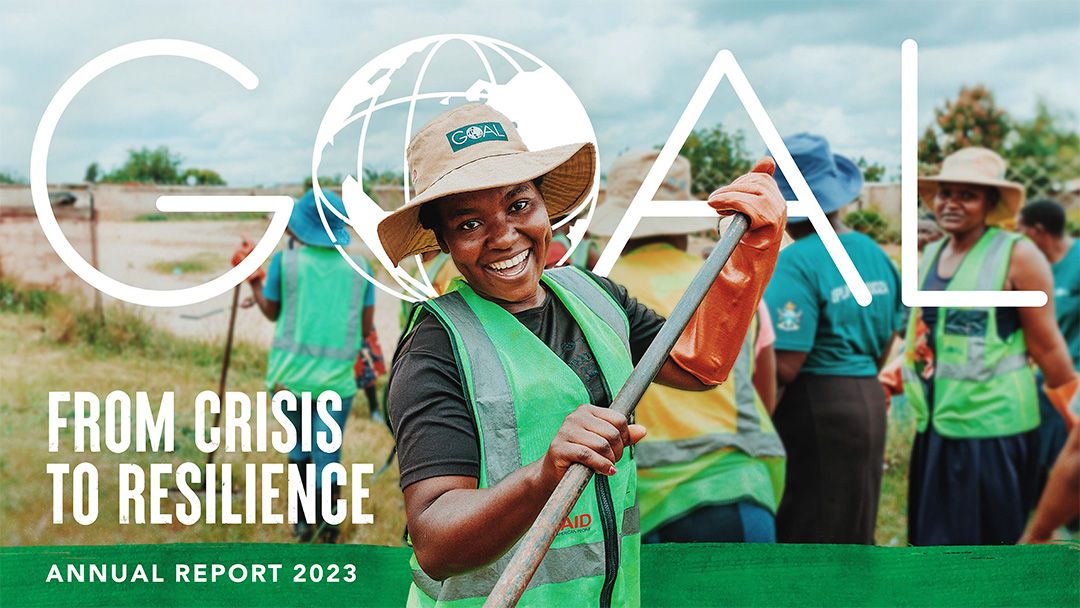GOAL is committed to maintaining the highest levels of good governance across our organisation and in our humanitarian programmes. We prioritise accountability with all our stakeholders, particularly the communities, donors and partners that we work with.
Workplace integrity
Authentic workplace integrity - where a strong moral character lies at the core is by definition a whole and ongoing organisational effort. It goes beyond transparency and accountability and includes compliance with the law and organisational standards, as well as with universal ethical principles, i.e. respect, fairness and honesty and applying these ethical norms in our professional context.
GOAL has a range of policies, procedures and systems that comprise our Workplace Integrity Framework and compliment and support our cultural commitment to accountability and integrity. The framework incorporates core policies including the Code of Conduct, Child Protection Policy, Protection from Sexual Exploitation and Abuse Policy, Whistleblowing Policy, Anti-Fraud Policy, Conflict of Interest Policy and internal controls and management systems that which empower and guide all internal stakeholders.
For more information on this area, please contact info@goal.ie
Key GOAL Organisational Policies
GOAL has in place a wide range of policies that set out our approach, expectations and ways for working across key areas of of our organisation and work.
For more information on our policies or to access them in different languages, please contact info@goal.ie
Legal, regulatory and statutory commitments
GOAL is registered with the Charities Regulatory Authority in Ireland, the Fundraising Regulator in the UK and is a registered 501(c)(3) organisation in the USA. In addition to this, GOAL has achieved ‘Triple Lock’ standard, as confirmed by Charities Institute Ireland. This confirms GOAL’s governance across three key areas:
Where donations and funding go
Last year, GOAL invested €197 million in our work supporting communities across 13 countries in Africa, the Middle East, Latin America and Ukraine.
We reached over ten million people through our emergency response, nutrition, health, and livelihood focus areas. We remain committed to delivering community-focused, sustainable and transformative change where it is needed most.
Our commitment to you
To demonstrate our commitment to openness, transparency and integrity to donors and beneficiaries, GOAL adheres to the 'Triple Lock' standards (transparent reporting, good fundraising and governance), as published by the Charities Institute Ireland.

GOAL 2023 Annual Report
2023 was a year of progress and impact for GOAL
Humanitarian crises are increasing in number, magnitude, and complexity across the globe. In our global interconnected world, shocks in one corner can ripple across the globe. They can often worsen crises elsewhere by triggering conflict, displacement and spirals of negative coping behaviours. Never has GOAL’s work been more relevant.
The complexity of our working environment is changing rapidly, but GOAL remains resolute in its desire to carry out life-changing work. We are driven by our vision for a world where poverty no longer exists; where vulnerable communities exposed to shock and stresses are resilient; where barriers to well-being are removed, and where everyone has equal rights and opportunities.
The international community is increasingly recognising that more must be done, to move vulnerable populations exposed to disaster hazards, particularly those living in fragile and conflict-affected contexts, beyond humanitarian crisis and to achieve greater resilience. Key to this is strengthening local capacities by stabilising and supporting local systems and populations to move from crisis to survival and onto greater resilience.

